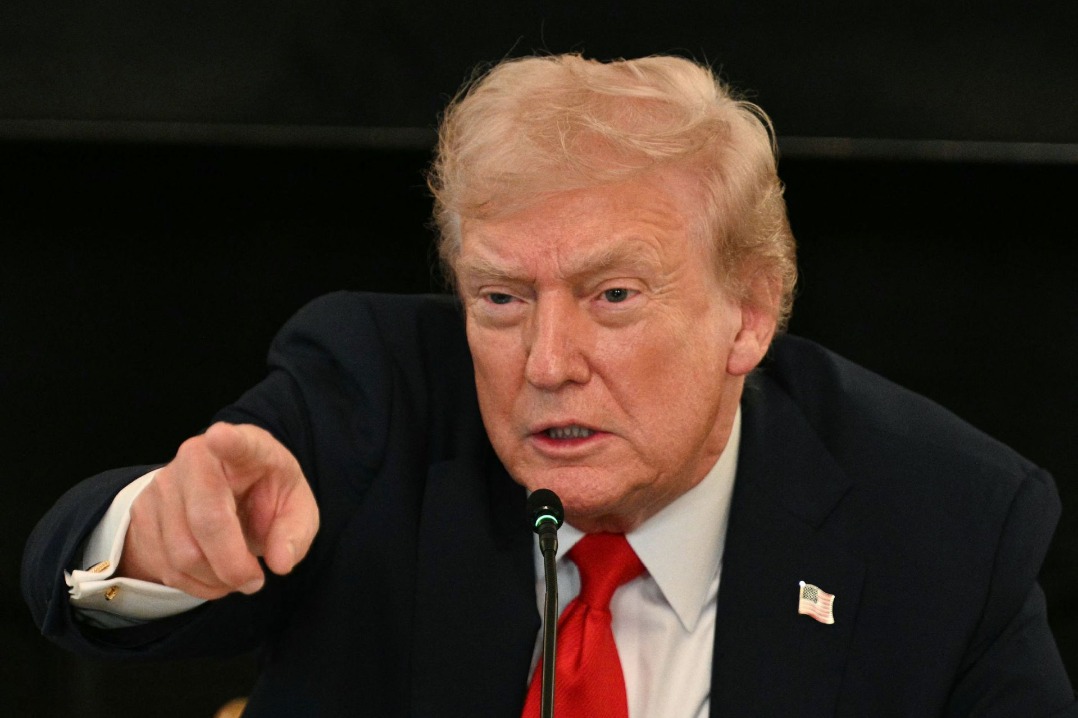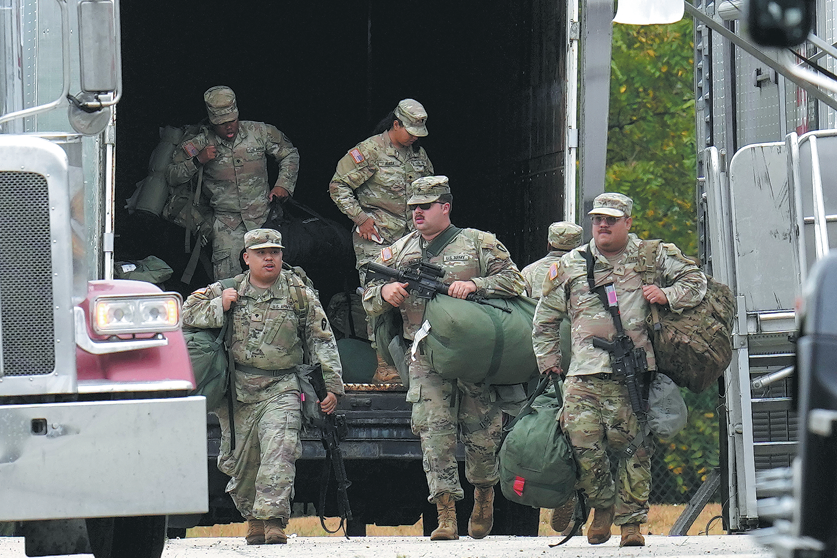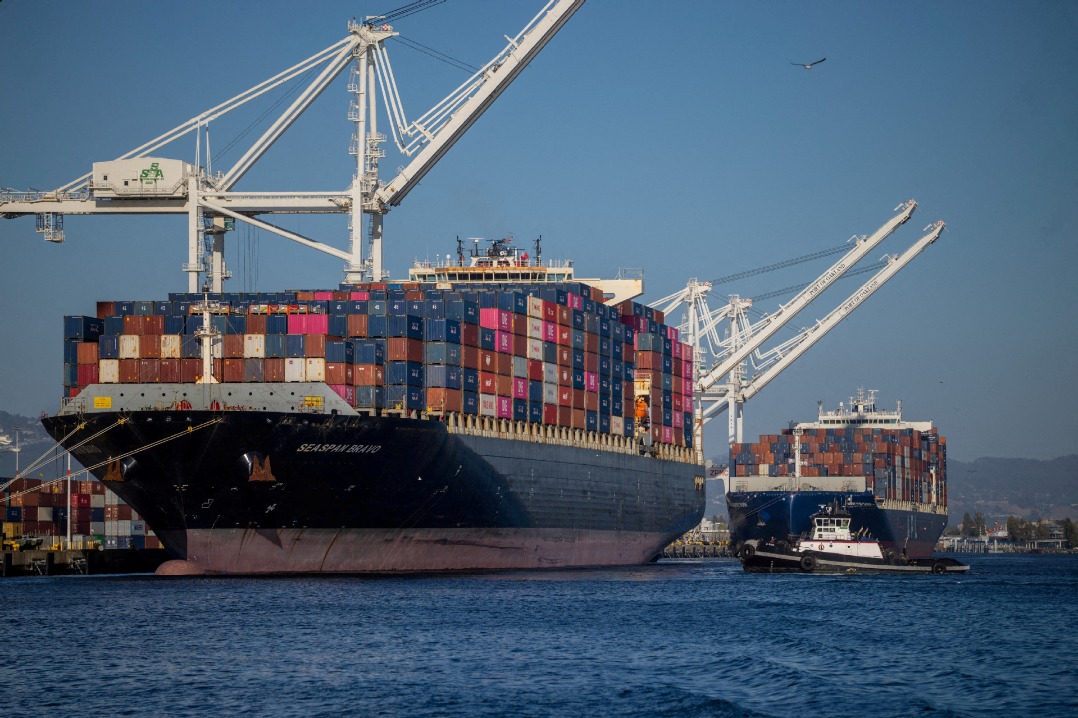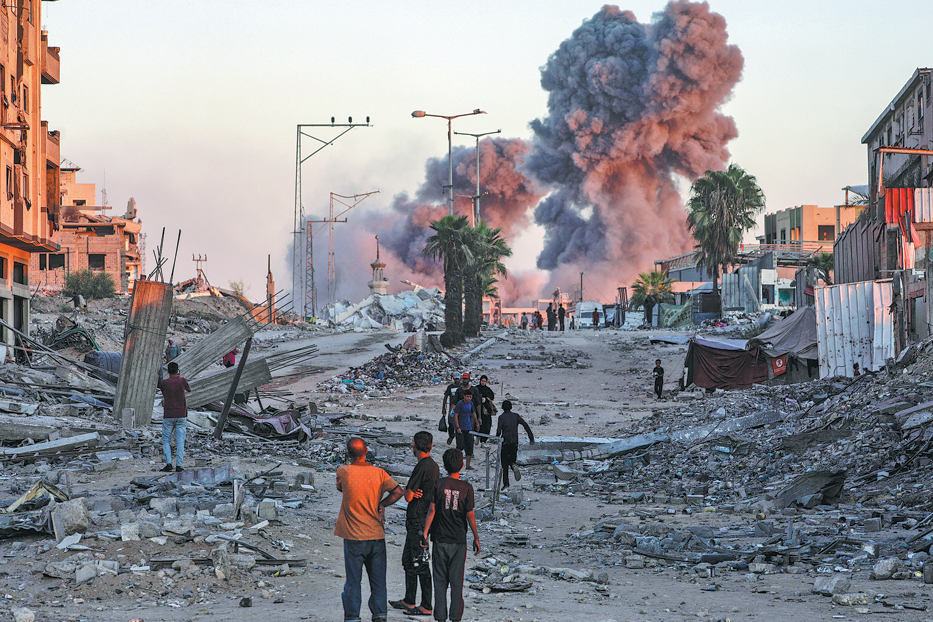India, Pakistan trade fire as clashes spiral
World urges nuclear-armed neighbors to exercise restraint, prevent escalation


India and Pakistan traded heavy artillery fire early on Wednesday following deadly Indian missile strikes, marking a significant escalation of clashes between the nuclear-armed neighbors. The international community has urged both countries to exercise calm and restraint to prevent further conflict.
The Indian government on Wednesday confirmed carrying out airstrikes on nine "identified terrorist-training camps" located in the Pakistan-controlled Kashmir.
Indian Prime Minister Narendra Modi personally monitored the airstrikes, according to Indian media reports.
The airstrikes were carried out under "Operation Sindoor", a retaliatory move to a deadly attack in which gunmen killed 26 people in Pahalgam in India-controlled Kashmir on April 22, the reports said. New Delhi blamed Islamabad for supporting the gunmen behind the attack, a charge Pakistan denies.
At least 38 deaths were reported on Wednesday, with Islamabad saying 26 civilians were killed by the Indian strikes and firing along the border, and New Delhi adding at least 12 dead from Pakistani shelling.
In response to India's overnight airstrikes, Pakistan had shot down five Indian fighter jets, the country's defense minister said early on Wednesday.
Pakistan's foreign office called the Indian airstrikes an unprovoked and blatant act of aggression. "India's reckless action has brought the two nuclear-armed states closer to a major conflict," said the foreign office, emphasizing that Pakistan reserves the right to respond "at a time and place of its choosing".
India's Ministry of Defense said in a news release, "Our actions have been focused, measured and non-escalatory in nature. No Pakistani military facilities have been targeted. India had demonstrated considerable restraint in the selection of targets and method of execution."
Qian Feng, director of the research department at Tsinghua University's National Strategy Institute, said the conflict between India and Pakistan has entered a high-risk phase.
"However, based on past experiences, international mediation, along with the existing mutual nuclear deterrence, remains the greatest key constraint preventing limited military clashes from escalating into full-scale war," he said.
The Indian military's statement reflects its aims of achieving a retaliatory effect through these attacks, catering to domestic political narratives and not wishing to further escalate the conflict, Qian said.
"India's emphasis on the non-escalatory nature of its actions is also intended to alleviate international concerns that India's military actions could trigger a broader crisis."
Unified stance
The international community has largely adopted a unified stance, urging both India and Pakistan to exercise maximum restraint and prevent further escalation of hostilities.
China is closely following the development of the situation, and will continue to play a constructive role in easing the tensions, Foreign Ministry spokesman Lin Jian said on Wednesday.
China stays committed to promoting peace talks and maintaining regional peace and stability, Lin said at a regular news conference.
"We also noted that both India and Pakistan have said they don't hope to see an escalation of the situation," he said. "We hope both sides will remain calm, exercise restraint, and work in the same direction to handle their differences properly through dialogue and consultation."
In a note to correspondents issued by his spokesperson late on Tuesday, UN Secretary-General Antonio Guterres expressed deep concern over Indian military operations across the Line of Control and the international border with Pakistan. He called for maximum restraint from the two sides, as "the world cannot afford a military confrontation between India and Pakistan".
The European Union called on India and Pakistan to act immediately to de-escalate. "We do urge both sides to show restraint and take immediate steps towards de-escalation. The EU recalls the need for a negotiated, agreed and lasting, peaceful solution to the conflict," EU foreign affairs spokesman Anouar El Anouni said on Wednesday.
The current water resource dispute adds another layer of volatility, Qian said. Following the Pahalgam incident, the Indian government announced the suspension of the Indus Waters Treaty, which was signed in 1960 with World Bank mediation, allocating control over six rivers between the two neighbors.
Pakistani Prime Minister Shehbaz Sharif said in his phone talks with the UN chief on April 29 that India's weaponization of the waters of the Indus Basin was unacceptable, noting that water was the lifeline of 240 million people of Pakistan.
Xinhua and agencies contributed to this story.
Contact the writers at yangran1@chinadaily.com.cn

































